This is the first year since . . . sometime in my early teens, I guess . . . that I have not seen any of the Best Picture nominees in a theater. I know it’s just one of many disruptions caused by the pandemic, but this feels particularly weird. I miss obsessively seeking out the nominated films, sometimes traveling an hour or more to find the more obscure gems. This year, my quest after the nominations were announced involved sitting on the couch and figuring out which streaming service offered the films.
It’s not nearly as much fun. It will not be my “new normal.” There is something wonderful about seeing a film in a theater the way it was made to be viewed, even with the inflated ticket prices, overpriced concessions and rude patrons (weekday matinees are best for avoiding any of those negatives.)
I wonder if this list would be any different had I seen the films on the big screen. Perhaps Nomadland would be higher; it’s a beautifully photographed film that begs for the expanse of a movie theater screen.
That’s the caveat I’m offering with this year’s list, an annual tradition here at the Unexpected Pastor Blog.
As has been the case the past few years, my favorite 2020 film (see the bottom of this post) was not even nominated for Best Picture. Keep that in mind as you consider my list.
Here then is not a prediction of which film will win, but my opinion of which are most worthy of winning. The most fun is disagreeing with the Academy and with each other, so please consider this an invitation to vigorously contest my opinions here or on Facebook.
 8. The Sound of Metal
8. The Sound of Metal
This year’s list was more challenging than the last few. The bottom spot on previous countdowns has been filled by films I just did not like (Vice, Phantom Thread), those I loathed (Joker), and those somewhere between dislike and loathing (The Revenant). There was also one nominated film at the bottom of a previous list that bored me to the point of sleeping through part of it (Her).
That was not the case with this year’s list. I at least appreciated all of the nominated films.
But I appreciated The Sound of Metal least. It is an excellent film with an amazing performance by Riz Ahmed, but it just did not resonate with me. The third (last) act in particular lost me. The scenes in Paris seemed tacked on with little to connect them to what had gone before. I would have liked to have known more of Lou’s story.
Again, that’s not to say The Sound of Metal is not a film worth watching. The many deaf actors who populate the strongest scenes lend a powerful authenticity. Paul Raci’s Joe is a compelling character. There is a scene (trying to avoid spoilers) in which Joe has to make and share a painful decision in which his disappointment is palpable. That scene alone earns his nomination for Best Supporting Actor. For me, it was the second-saddest scene in any of these films (see The Father below for the saddest) because Raci’s acting was so on point.
Riz Ahmed is a worthy Best Actor nominee, but he is not the likely winner (Chadwick Bosman) nor my pick (see The Father below again).
 7. Promising Young Woman
7. Promising Young Woman
I have written before that the sign of a “great” film for me is one that I am still thinking about the next day.
Promising Young Woman might cause me to add a qualifier to that test. Perhaps a great film is a one that I am still thinking about the next day in a way that is edifying.
That does not mean I insist on “happy endings.” Some of my favorite films end quite unhappily.
But I found the ending of Promising Young Woman to be exploitive and tone deaf. (I am trying to avoid spoilers so I’m going to be vague about the identity of the person I’m about to talk about, but you might want to skip to the next silm if you have not seen Promising Young Woman.) Watching someone die – not just die but struggle and suffer and suffocate – is not the redemptive outcome that the film seems to want us to think it is with the subsequent texts and arrests.
Suffering is not redemptive. I can’t help but come at this from a theological perspective because of what I do for a living. One of the biggest misunderstandings about Christianity among Christians is that suffering is salvific. It’s not. It sucks. Suffering should be lamented. From my perspective, there was only one person’s suffering that was salvific, and that was 2000 years ago.
What about when suffering is on someone else’s behalf? That’s another problem with this film. Perhaps that is the case in Promising Young Woman, but the other person never asked for it or consented to it. In fact those closest to her said it was not what she would have wanted.
I’ve written a lot about what I didn’t like about Promising Young Woman. If not for the ending, it would be much higher on this list. Carey Mulligan is amazing, and until the end the film strikes just the right dark comedy tone. Until then, I was riveted and appreciated the film’s important statement about sexual assault and misogyny.
But that ending though . . .
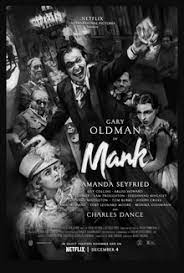 6. Mank
6. Mank
I should have loved Mank. A film about films? A film about writing? A film about Citizen Kane? In stunning black and white?
Mank checks a lot of boxes for me.
But my attitude toward Mank reflects the attitude of some young women toward me in high school: “I like you. But I don’t like you like you.”
Why did I not like like Mank?
My tepid response begins with the central performance, Gary Oldman’s Oscar-nominated turn as Herman J. Mankiewicz. Gary Oldman is a brilliant actor. He deservedly won the Best Actor award for his portrayal of Winston Churchill in The Darkest Hour. But I never bought 60+ year old Oldman’s portrayal of the 40-something Mankiewicz. The character walks a tightrope between irritation and charm; Oldman fell off into irritation.
Amanda Seyfried was quite good, though. The black and white cinematography was gorgeous. The evocation of old-time Hollywood with its glitz and corruption was delicious.
Yes, Mank, I like you a lot.
I just don’t love you.
I hope we can still be friends.
 5. Nomadland
5. Nomadland
Nomadland brings us to the point in this list where I will be happy if any of the remaining films win. Nomadland is the favorite going into Sunday night, and justifiably so.
One of the best things about films is that they help us understand people and cultures different than our own. Roger Ebert called movies “empathy machines.”
Nomadland is an empathy machine.
In it we are introduced to a way of life foreign to most of us, a culture that exists both under the radar of capitalism run amok and created by it. I didn’t know anything about van life or van dwellers before watching Nomadland. After viewing the film, I felt I had not just learned about the culture but had experienced it and gotten to know its people some as well.
The film’s authenticity comes from brilliant direction and from Frances McDormand’s typically flawless performance, but also from the crucial choice to populate Nomadland with actual participants in the van living culture.
Nomadland is also, as I said in the introduction, a film of wondrous beauty. Joshua James Richards should walk away with the Best Cinematography award on Sunday, and Chloe Zhao would certainly be a worthy winner of Best Director (which she is favored to win).
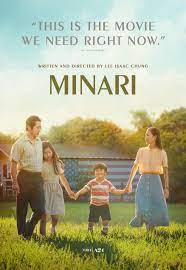 4. Minari
4. Minari
Everything I said above about “empathy machines” applies to Minari. And then some.
Much less expansive than Nomadland, Minari transports us into the lives of the family at its center.
It is is a beautiful picture of family. The beauty does not come from a portrayal of perfect harmony, but of love abiding through challenges and disagreements. It’s a story about immigrants, but infused with universal themes. It’s also about one version of the American Dream.
Minari is funny, heartbreaking, and ultimately hopeful.
Minari may be more low-key than most Best Picture nominees and especially winners, but its authentic resonance makes its accolades well deserved.
And Yuh-Jung Youn should be awarded Best Supporting Actress on Sunday for her wonderful portrayal of “not a real grandmother.”
 3. The Father
3. The Father
The Father was the penultimate film in my Best Picture nominee viewing. By that point I had this list formed in my head, including where I thought the last two would end up.
Boy was I wrong about The Father.
I did not anticipate that it would be this high on the list.
This was a film that I thought about the next day. And the next.
Continuing the “empathy machine” theme, never before have I seen a film that so effectively portrayed the disorientation of dementia. By keeping the us off-balance, we’re thrust into the world of Anthony Hopkins as the title character.
“The Father” is a drama, but it’s really a horror film. It’s more scary than any supernatural thriller because it resonates with our real-life fear of growing older and losing our memory, our independence, and even our identity.
It’s challenging, sad, and yes, scary. It’s also brilliantly done.
Although Chadwick Bosman will almost certainly win Best Actor, any other year I believe Hopkins would be the front-runner.
His delivery of the ingenious line, “I feel as if I’m losing my leaves,” was for me the above-mentioned most heartbreaking movie moment of the year.
 2. Judas and the Black Messiah
2. Judas and the Black Messiah
We’ve reached the Fred Hampton portion of the list. The real-life revolutionary activist is a character in both of my top two films. He’s just a supporting figure in the film at #1, but he is one of two primary characters in Judas and the Black Messiah. (He’s the “Black Messiah.”)
I had great difficulty ranking these last two films. Both of them are excellent and important. I’ll describe why the film at #1 ended up there when I get to it; let me tell you why Judas and the Black Messiah is so high on my list.
We’ve got to start with the two title performances – LaKeith Stanfield as “Judas” Bill O’Neal, and Daniel Kaluuya as “Black Messiah” Fred Hampton. As electric as Kaluuya’s performance is, I appreciated the complexity of O’Neal’s portrayal even more. Both are nominated for Best Supporting Actor – how about a tie with each taking home a statue Sunday night?
Judas and the Black Messiah is a film that compels attention, exhilarates, and ultimately breaks your heart. It should also make you very, very angry.
It’s history they don’t teach in school. It tells the truth about our country and its systems of law enforcement and justice. And it forces us to confront issues of race and class and even economics. But it’s also an eminently watchable film.
Don’t miss it!
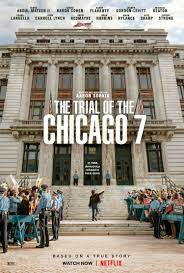 1. The Trial of the Chicago 7
1. The Trial of the Chicago 7
As I wrote above, The Trial of the Chicago 7 shares themes with Judas and the Black Messiah. It even shares a character.
So why is The Trial of the Chicago 7 #1?
Simply because I found it to be as effective at expressing those themes while at the same time being a more compelling, and especially enjoyable, movie-watching experience.
And maybe because I’m a sucker for Aaron Sorkin’s writing. For me, no one except David Mamet has a more distinctive screenwriting (and teleplay- and play-writing) “voice.” No one, again except David Mamet, gets more words-per-minute on screen or stage.
There have been many great films about trials – Anatomy of a Murder is one of my all-time favorites. The rituals of the courtroom and the arc of a trial fit well into the three-act form of movie storytelling.
There is something inherently theatrical about trials, and there are plenty of courtroom theatrics in The Trial of the Chicago 7. It’s one of those movies that tell a true story that is sometimes so outlandish that “they couldn’t make this stuff up if they wanted to.”
The Academy Award for Best Picture is obviously a movie award, and I would vote for The Trial of the Chicago 7 because I believe it is the best movie of the eight nominated.
Not only have I thought about the events of the film since I saw it, but I remember my reactions to those events. Although the themes are indeed serious and “important,” the 130 minutes flew by. Among the powerful emotions evoked, I was also entertained. That is, for me, a mark of effective movie-making.
And it gets my hypothetical vote for Best Picture.
—
BONUS: My Pick for the Best Picture of 2020
Charlie Kaufman achieved quite a feat this year. He wrote and directed the best film I saw – I’m Thinking of Ending Things. Watching it was to enter a confounding, enthralling, frustrating world that defies the conventions of reality and storytelling. It was great, and I’m still not sure what the hell was going on!
Charlie Kaufman also wrote the worst book I read – Antkind. I slogged through the 700+ pages over many weeks, not wanting to give up because I love his films (Being John Malcovich, Adaptation, Eternal Sunshine of the Spotless Mind), and ultimately because I had invested so much time in it. I should have stopped.
See the film! (It’s on Netflix.) Don’t read the book. (I’m doing you a favor by not linking to it on Amazon.)
Here’s what I posted about I’m Thinking of Ending Things on Facebook:
Anybody else watched it? What did you THINK?
I’m not sure whether to recommend it or not. It is . . . disturbing. Not just in the ominous undertone that pervades the film, but in the way it disturbs perceptions of reality and time. (But also very funny at times.)
Charlie Kaufman (writer and director) is such an original voice – Adaptation is one of my top 10-15 films, and I can watch Eternal Sunshine of the Spotless Mind and Being John Malkovich repeatedly. (Synechdoche, NY blew me away, but once was enough.)
I’m Thinking of Ending Things is ultimate Kaufman – characters change names, ages, pasts without warning. There are long, My Dinner with Andre-type conversations about philosophy, poetry, art, film, and musicals, except it turns out much of that dialogue (and poetry, and art) is quoted verbatim from other sources.
Entering the world of the film puts you off-balance; that’s a big part of the “fun” of watching it. There are puzzles that are never solved – I have some ideas but don’t think there’s an definitive answer to what’s going on.If you like stuff like that, by all means check it out. I will be watching it again check out some of the ideas I have about what’s going on.
Oh, Jessie Buckley and Jesse Plemons do an incredible job with very demanding (and confusing) roles. As you would expect, Toni Collette and David Thewlis are memorable in very strange supporting roles.
BONUS 2: The Two Films I Just Plain Enjoyed the Most in 2020
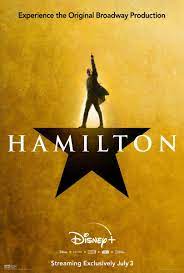
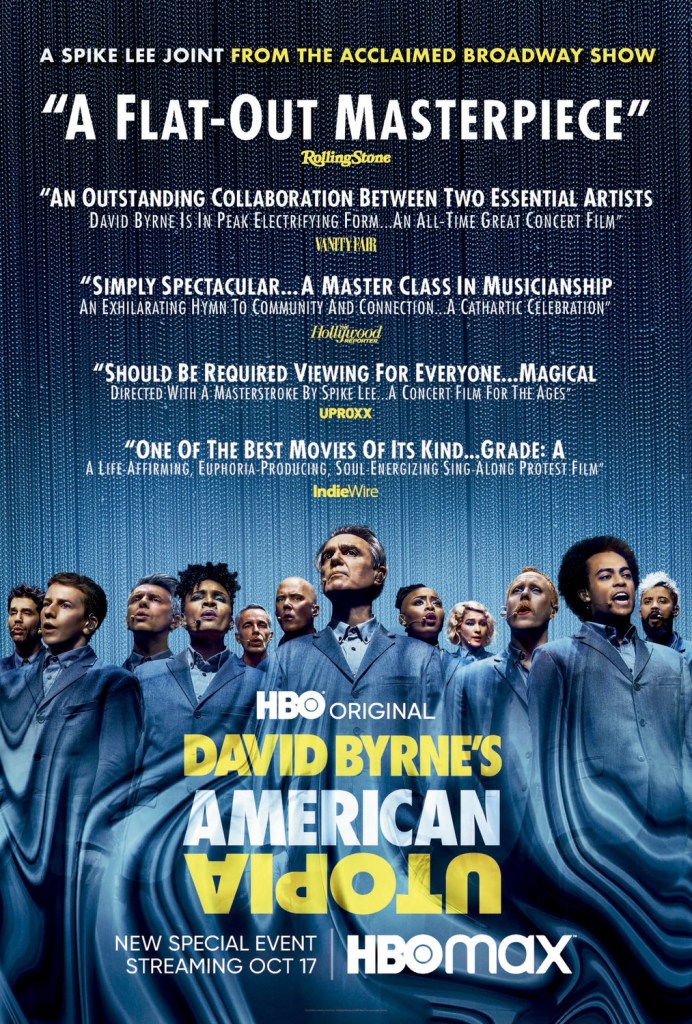



 My book, Too Smart for God, is now available in
My book, Too Smart for God, is now available in 
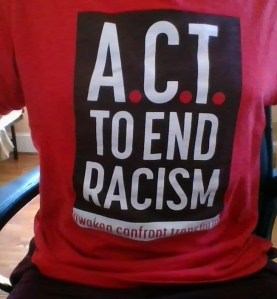



 9. Joker
9. Joker 8. Ford v Ferrari
8. Ford v Ferrari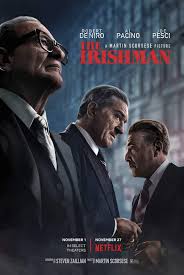 7. The Irishman
7. The Irishman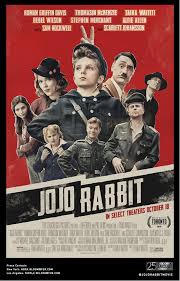 6. Jojo Rabbit
6. Jojo Rabbit 5. 1917
5. 1917 4. Little Women
4. Little Women 3. Marriage Story
3. Marriage Story 2. Parasite
2. Parasite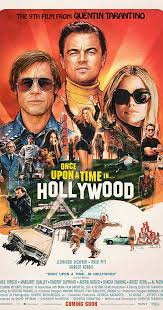 1. Once Upon a Time in Hollywood
1. Once Upon a Time in Hollywood
 (Sermon preached at Christ Lutheran (ELCA) Church of Millersville, Maryland. You can see a video of the sermon
(Sermon preached at Christ Lutheran (ELCA) Church of Millersville, Maryland. You can see a video of the sermon  The Bible is the Word of God.
The Bible is the Word of God. (Sermon based on Matthew 28:1-10 preached at Christ Evangelical Lutheran Church of Millersville on Easter Sunday 2019. You can hear a podcast of the sermon
(Sermon based on Matthew 28:1-10 preached at Christ Evangelical Lutheran Church of Millersville on Easter Sunday 2019. You can hear a podcast of the sermon